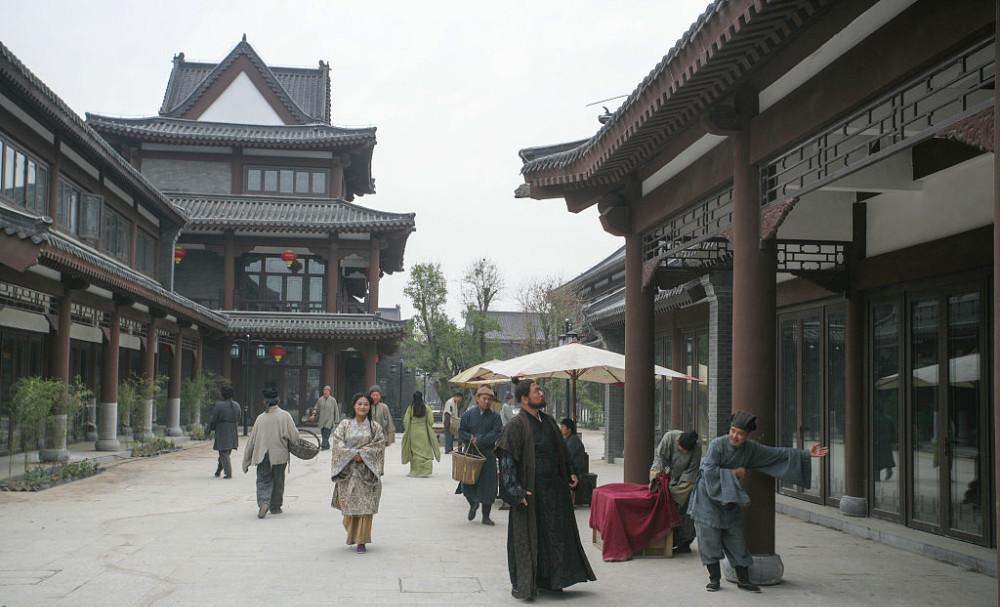The idiom borrows a knife to kill people, which is a metaphor for not coming forward and borrowing the hands of others to harm others. From Ming Wang Tingne's "Three Blessings and The Fall of the Fall": "Enxiang Tomorrow played Zhongyun for the Huanqing Road to invite a slight envoy, to Ping Yuanhao, which is called borrowing a knife to kill people."

To say that the use of borrowing a knife to kill people to the point of pure fire, Liu Bei is still the most skilled.
Although Lü Bu killed Dong Zhuo and became a hero to protect the Great Han, but later Dong Zhuo's Yu Party Li Daoguo drove Lü Bu out after he rebelled in Chang'an, and Lü Bu successively abandoned Zhang Yang and threw Zhang Mi like a dog that lost his family, which was not tolerated by the princes. There was no way to go, and finally came to Liu Bei, who was sitting in Xuzhou.
Lü Bu had just defected to Liu Bei, and he actually despised Liu Bei very much and put up his old qualifications. The Chronicle of the Three Kingdoms and the Biography of Zhang Mi records: "Cloth please be prepared to sit on the woman's bed in the tent, make the woman worship, drink wine and eat, and be named a brother." Liu Bei saw that Lü Bu's language was impermanent, and his heart was not very full at that time, but he did not show it.
After Lü Bu defected to Liu Bei, he did not think about the report, but crossed the river and demolished the bridge, and the "Chronicle of the Three Kingdoms and the Biography of the Ancestor Lord" recorded: "The first lord and the art held each other for a month, and Lü Bu took advantage of the false attack to attack Pi." In the same year that Lü Bu surrendered to Liu Bei, Yuan Shu led his troops to attack Xuzhou, and Lü Bu actually took the opportunity to sneak into Xia Pi under the inducement of Yuan Shu, giving Liu Bei a "knife in the back", and forcing Liu Bei to leave his wife and daughter and flee to Haixi.
Liu Bei, who had no territory, was hunted down and killed by Yuan Shu, and Liu Bei had no choice but to return to Lü Bu, who took Liu Bei in and asked him to guard Xiao Pei and become a corner to fight against the princes who might attack. After that, although the two skillfully defused Xun Yu's strategy of "driving away the tiger and swallowing the wolf", suspicion began to appear in each other's hearts.
Later, Lü Bu saved Liu Bei by "shooting at the gate" (Lü Bu also saved Liu Bei for the purpose of using Liu Bei as a pawn), which angered Yuan Shu, and eventually Lü Bu drove Yuan Shu away, and for a time he stepped into Jianghuai.
Lü Bu, who had lived a short and stable life, began to dislike Liu Bei, especially recruiting troops and horses under his eyes, accumulating strength. So he sent an army to attack Liu Bei, and at this time, Liu Bei's strength was weak and how could he compete with Lü Bu, so he had to defect to Cao Cao. Lü Bu was eventually captured under the joint strangulation of Cao Cao and Liu Bei.
Although Cao Cao hated Lü Bu, Cao Cao especially cherished talents, especially the tiger generals of the world like Lü Bu. His heart was wavering, and Liu Bei, who was sent to the fence, saw Cao Cao's hesitation. Just say to Cao Cao.
"Don't you see ding yuan and Dong Zhuo's misfortune?"
Cao Cao, who had been hesitant at first, seemed to be suddenly awake, so he ordered Lü Bu to be executed.
Liu Bei was not willing to surrender to Cao Cao for a long time, if Cao Cao surrendered Lü Bu, then his strength would be further enhanced, then it would be more difficult for him to resist in the future, and he and Lü Bu had a vendetta, and Lü Bu would definitely wait for an opportunity to retaliate after he gained power. In order to weaken Cao Cao's strength, quoting the deaths of Ding Yuan and Dong Zhuo, he quietly and cleverly let Cao Cao remove his own obstacles. It's pretty clever.